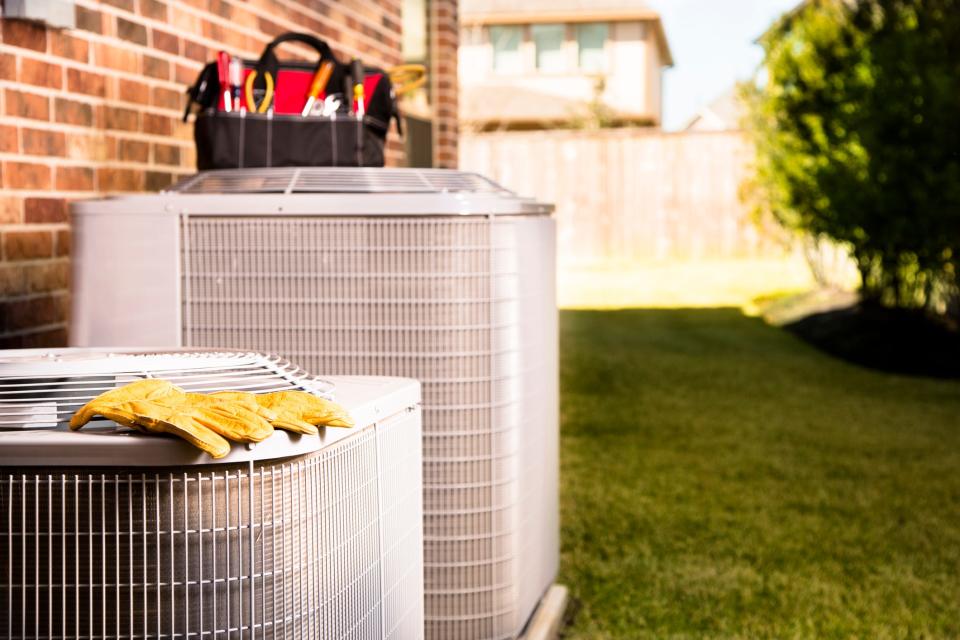Summer is unofficially here. Here’s how you can save on your electric bill
Inflation is coming down from a 40-year high, but customers can still expect to pay more on their electric bills this summer, thanks to the state’s annual energy auction.
But there are ways New Jersey residents could shave dollars and cents off their electric bills.
With Memorial Day weekend upon us, summer is unofficially here. On average, New Jerseyans paid nearly $115 a month on their electric, according to the financial advice website SmartAsset.
Why is my electric bill going up?
The new electric prices take effect on Thursday. That’s thanks to an auction by the state Board of Public Utilities that sets the wholesale electricity prices that the four electric utilities will pay and pass through to all New Jersey residential customers and small businesses who have not chosen a third-party electric supplier.
Electric companies have assured that they don’t make a profit through the increases.
Joseph Fiordaliso, president of the state BPU, said the increases “are generally at or below the current rate of inflation.”
The monthly increases are as follows:
Atlantic City Electric: 4.1%, or $5.49, to $141
Jersey Central Power & Light: 4.8%, or $4.49, to $97.14
PSE&G: 3.3%, or $4.09, to $126.48
Rockland Electric: 6.9%, or $8.24, to $128.50
To help save money on your bill, we've put together a guide on how to save during these next few months of hot weather.

Make sure your cooling systems are buttoned up
Dirty filters make the air conditioner work harder, so replace them monthly, according to Public Service Electric and Gas.
Meanwhile, ceiling fans work just as well and cost less to cool the house, PSE&G added.
Fans use as much as 90% less energy than an air conditioner, according to the state BPU..
“The smaller the difference between the indoor and outdoor temperatures, the lower your overall cooling bill will be,” reads the U.S Department of Energy website.
That means setting your thermostat higher when you’re away from the home or apartment during the warmer months, PSEG said.
"Keep your house warmer than normal when you are away, and lower the thermostat setting when you return home and need cooling," the Energy Department said. "A programmable thermostat allows you to do this automatically and without sacrificing comfort."
You should avoid placing lamps or TV sets near your air-conditioning or thermostat, the Energy Department said, because those appliances might react to the heat from the light.
You should also seal holes and cracks around doors and windows with caulk or weather-stripping material, to prevent warm air from leaking into your residence.
Conserve energy when cooking and cleaning
Microwaves and crockpots save more energy than an oven, PSE&G said. Laundry should be washed in cold water, PSE&G added, and dishes and clothes should be washed in full loads.
Appliances should be used in the mornings or evenings, the utility company added, when it’s cooler outside.
“Replace old appliances, including room air conditioners, with energy efficient options,” the state BPU said. “Replace old, inefficient, energy-sapping appliances (refrigerator, freezer, air conditioner, oven, etc.) with high efficiency models.”
The BPU also advised to keep the fridge at a constant temperature of 36 to 38 degrees Fahrenheit for “maximum effectiveness,” and the freezer at 15 degrees.
More commonly used items should be kept in one place in the refrigerator so the door would be kept open for a shorter period of time.
According to the BPU, LED lightbulbs will save $55 more in electricity costs than a traditional 100-watt CFL bulb, despite higher upfront costs.
This article originally appeared on NorthJersey.com: NJ energy bills are going up June 1. Here's how to save

